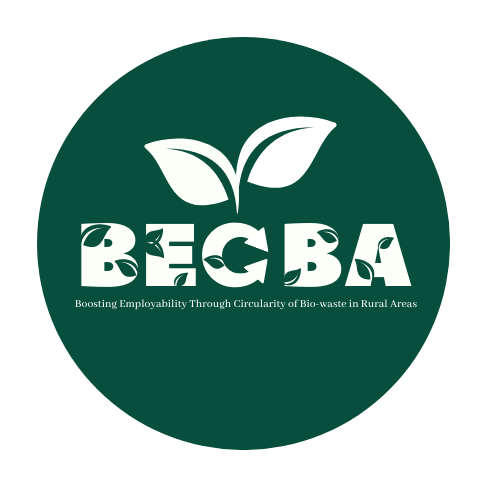BIO LABS GREECE
Circular economy workshops
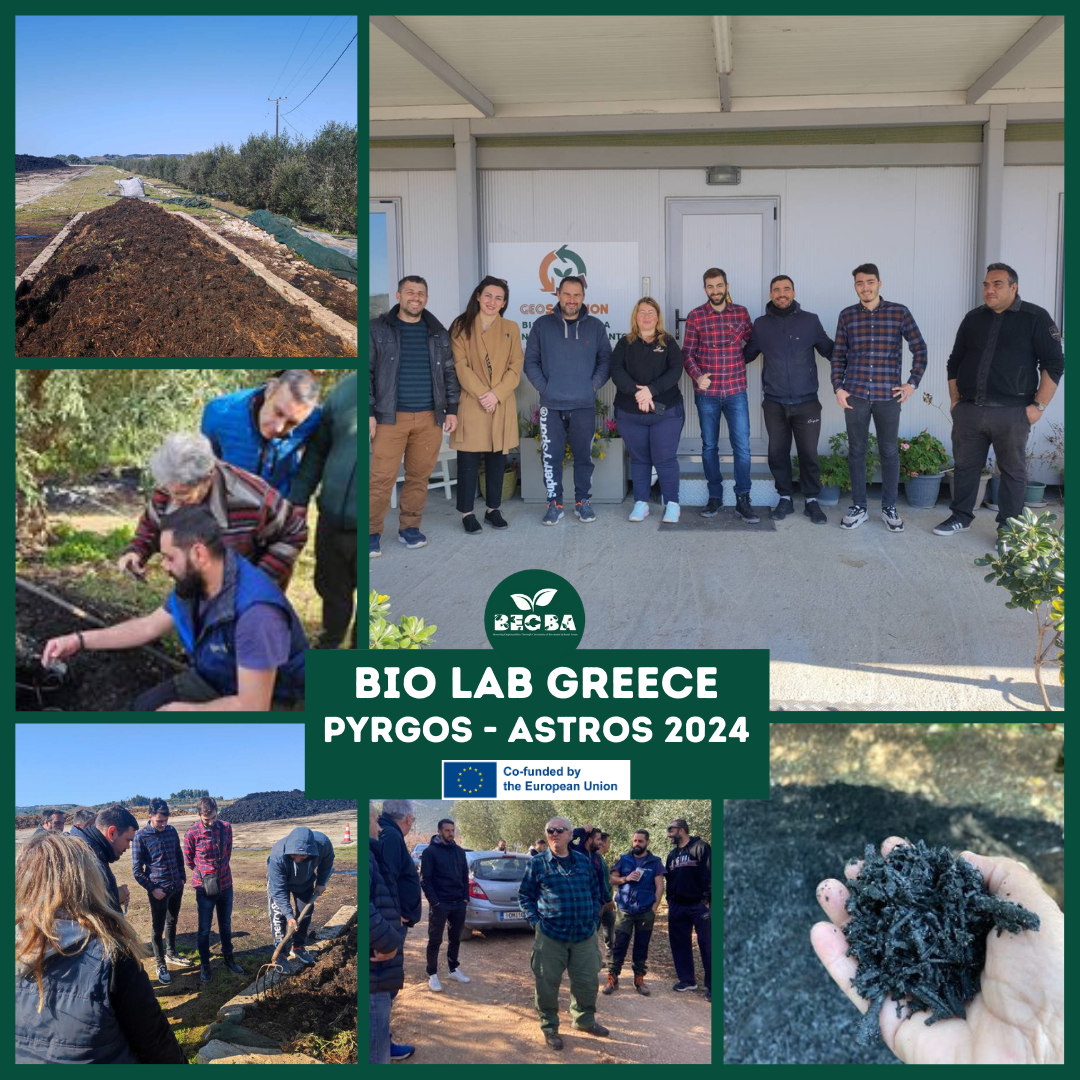
In the framework of the European project BECBA- Boosting Employability through Circularity of Bio-waste in Rural areas, free workshops on circular economy were organized in February and March, in 3 cities of the Greek region!
The final outcome of the workshops was to create at least 10 products of organic origin applied in different soil scenarios to exploit the opportunities to enter the green market through the virtual incubator process that will be created in the next stage of the project.
Pyrgos 2024
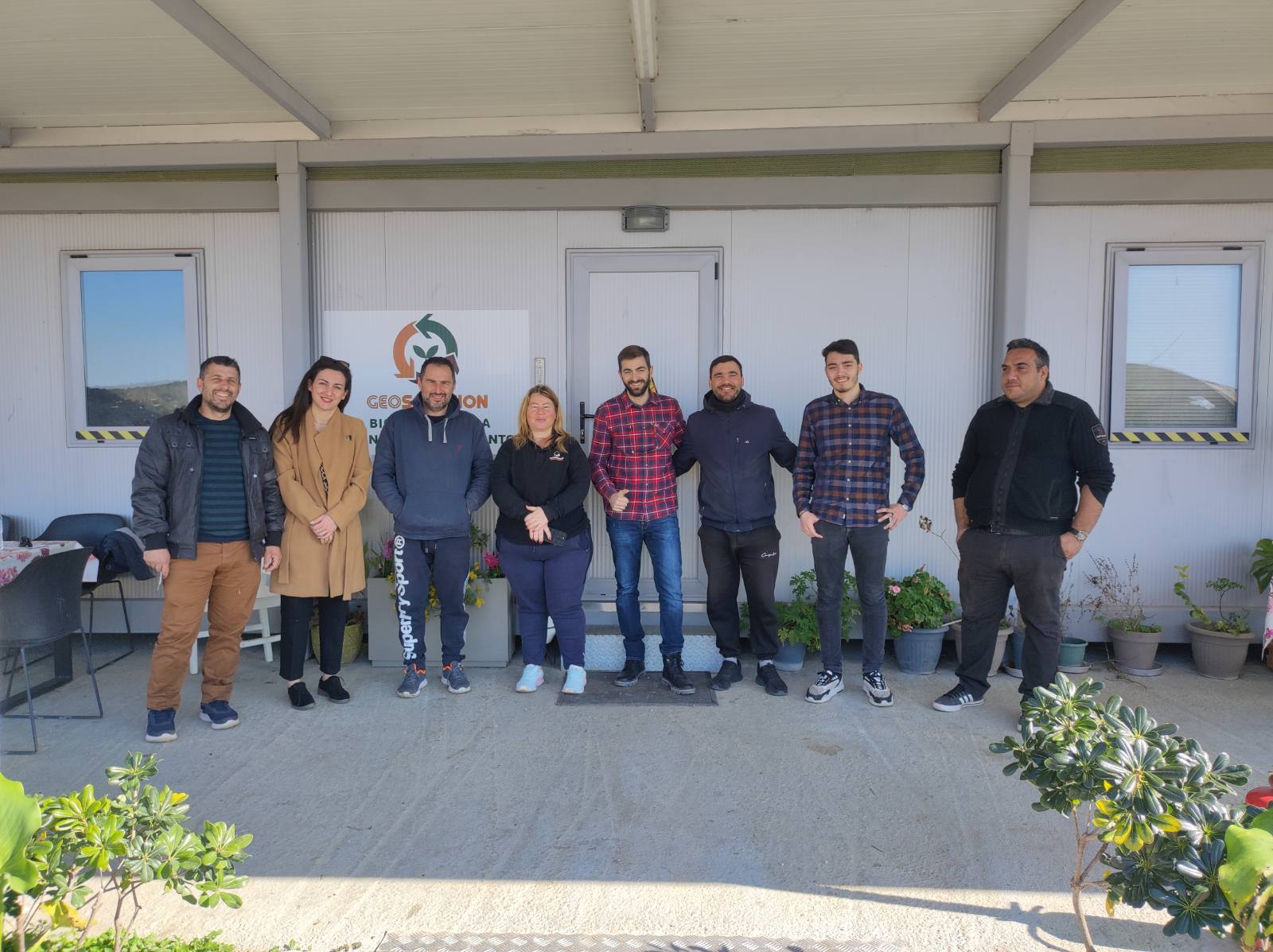
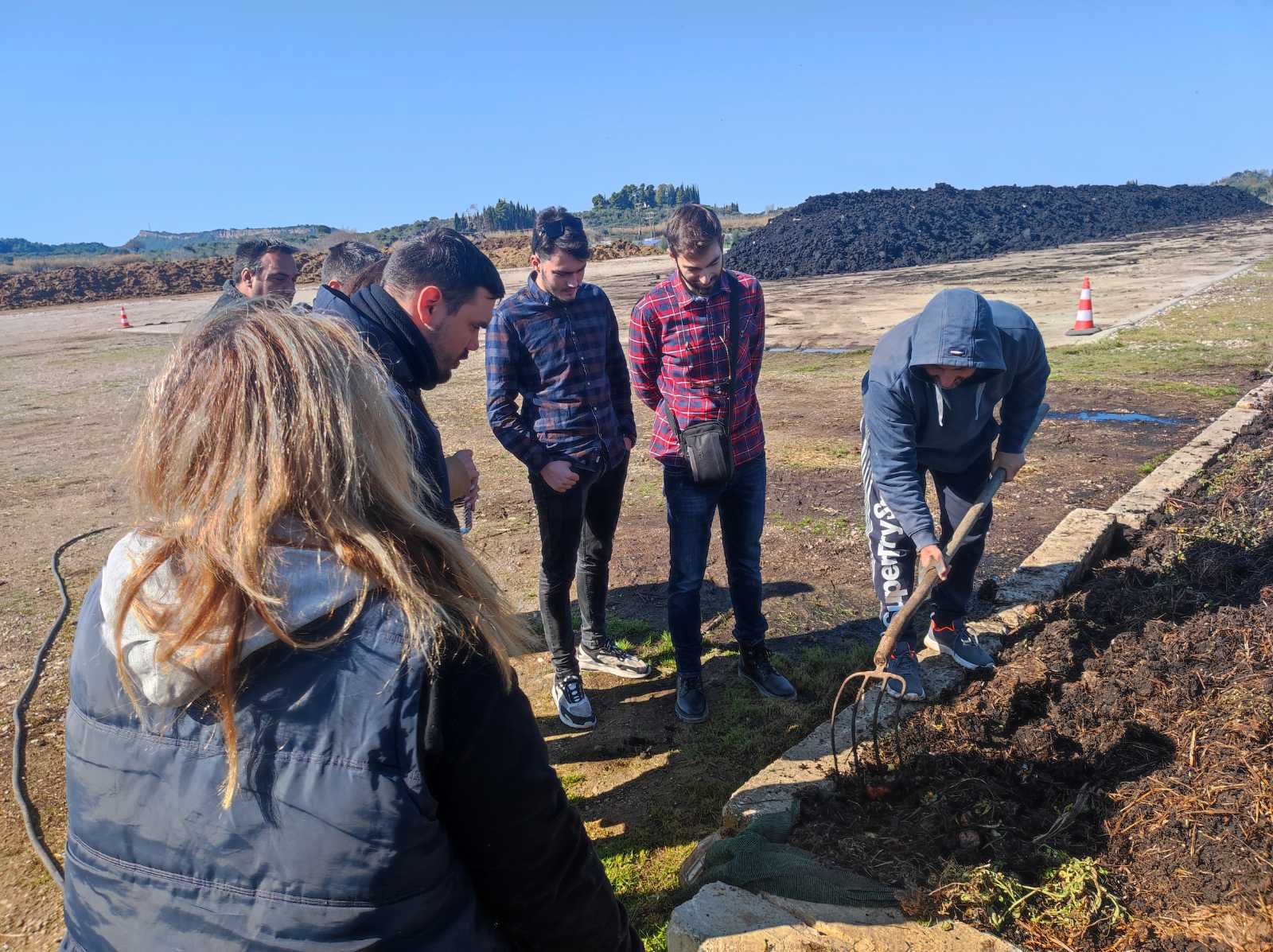
Region and backround
Pyrgos is a city in the northwestern Peloponnese, Greece, capital of the regional unit of Elis and the seat of the Municipality of Pyrgos.
One of the biggest problems that Pyrgos faces is the management and use of waste, whether it is bio-waste or common waste. For over fifteen years waste has been in the riverbed of Alfeios waiting for a solution from various institutions with the most prevalent one being their utilisation by the new waste treatment plant constructed in the municipality, four years ago.
During the BECBA transnational training activity in Vienna, Lampros Antonopoulos (Olive oil producer & Founder of Eutropia Evoo) and Vasileios Tsanaktsidis (Agronomist and Agricultural Consultant) worked together to develop an action plan for Compost from Olive Cultivation Waste that aimed to tackle the problem of the olive cultivation industry generating a significant amount of waste that poses environmental challenges.
Local activity
The Greek youth workers introduced the participants to the BECBA project, shared their experience from the training activity in Vienna and transferred their knowledge and experience to them on the topic of bio-waste.
The first topic was the identification of the challenges that exist in Pyrgos in regard to waste, the reasons behind the problem and possible solutions. Following this, the young participants were divided into 2 groups and worked on 2 projects based on the ‘Action Plan for Compost from Olive Cultivation Waste’ by finding the titles, common purposes, vision and goals for the creation of the 5 bio-based products that will result from each project.
Finally, the young participants visited the local bio-waste treatment facility ‘Geosolution’ that processes bio-waste, mainly from tomato factories, olive oil mills etc., and produces compost and organic fertilisers and sells them all over Greece. Through hands-on field experience, the participants were inspired and encouraged by the owners’ excellent tour, experiencing first-hand the problems they faced and the solutions they provided.
Astros 2024

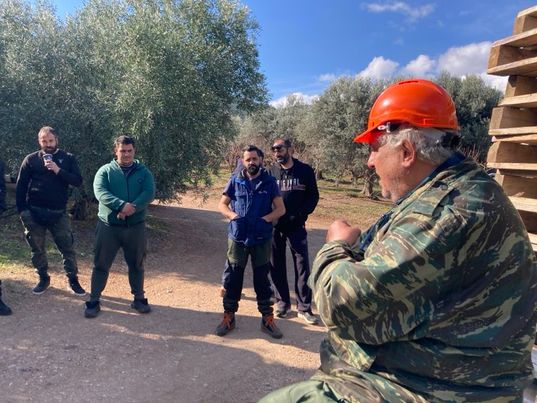
Region and backround
Astros is a small town and the seat of the Municipality of North Kynouria, in the province of Kynouria in the prefecture of Arcadia. It is located in a fertile and extensive plain that has an important strategic position.
During the BECBA transnational training activity, Christiana Gardikioti (founder of the social enterprise Meraki People) and Yannis Zannias (Agricultural Specialist and Farm manager) worked together to develop an action plan that aimed to tackle the lack of awareness regarding bio economy and circular economy, practical applications (best case examples that link activity with job creation and value adding entrepreneurial action), and capital resources to encourage and support new projects.
Local activity
The Greek youth workers introduced the participants to the BECBA project, shared their experience from the training activity in Vienna and transferred their knowledge and experience to them on the topic of bio-waste.
The first topic was the principles of regenerative farming, and in particular that of soil cover, for which Yannis has developed ways of using it as animal feed. The second topic was the cultivation of industrial hemp, starting with historical data in Europe and Greece. Yannis then focused on pith and talked about its uses and applications so far in the market. A visit to a local estate was organised so that Dr. Michael Ainatzoglou (independent researcher on Olive and Environment and an olive grower) showed to the participants how to convert olive residues into biochar using the pyrolysis method. While the process was going on, Dr. Ainatzoglou analysed critical issues of biology and sustainability of agricultural crops, touching on key survival issues that concern the immediate future.
Christiana focused on the topics of making compost from household waste and using it in olive cultivation, biochar and its beneficial effects on carbon dioxide absorption, and the production of mushrooms on olive branches, using the EKOFUNGI method (https://www.systemekofungi.com).
Thessaloniki 2024
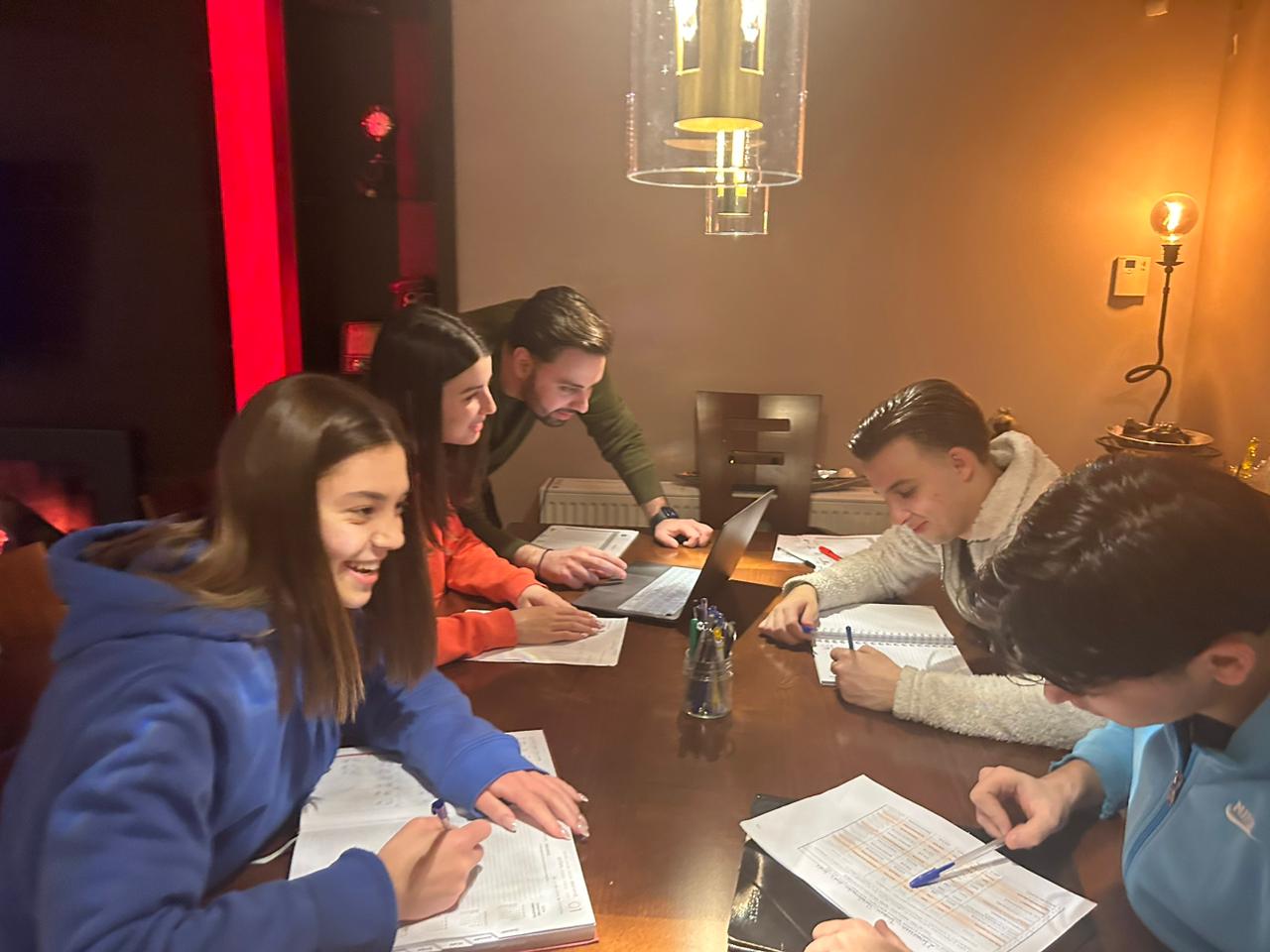
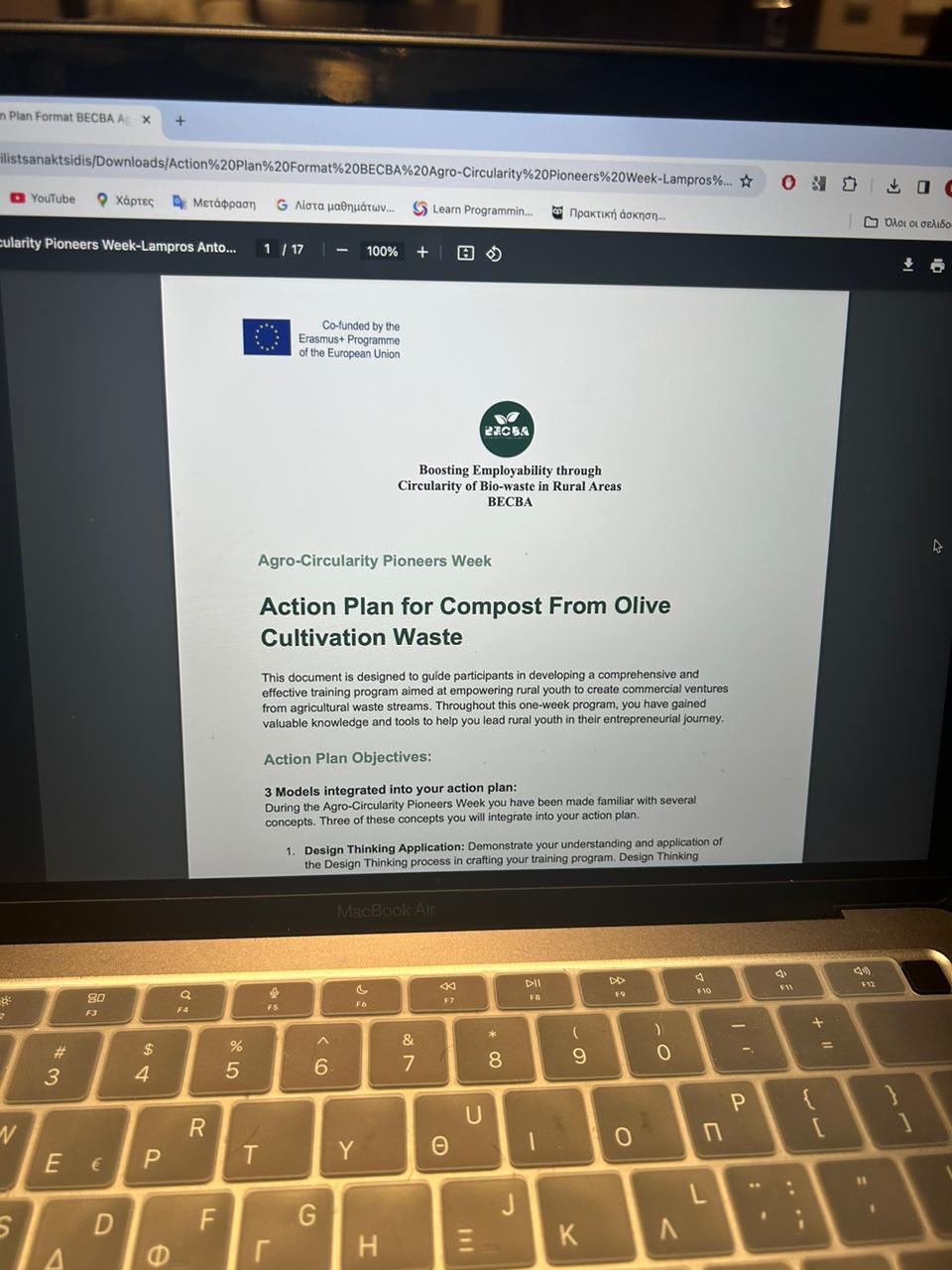
Local activity
The Greek youth workers introduced the participants to the BECBA project, shared their experience from the training activity in Vienna and transferred their knowledge and experience to them on the topic of bio-waste.
The first topic was the principles of organic Waste Management Solutions, where Vasileios Tsanaktsidis, MSc Agronomist – Agricultural Consultant shared his knowledge about a wide range of organic products such as vegetables, wine, pesticides and fertilizers.
Then, trainees were divided into 2 groups by the instructor. The first group found 5 organic foods, while the second one thought some organic products related to agriculture and human health. Each product aligned with the principles of sustainability, environmental responsibility, and community engagement.
We would like to thank the trainers and participants for their participation in this innovative initiative for the sustainable regeneration of the Greek countryside and the adoption of circular economy methods in Greek agriculture.
Follow the BECBA project on Facebook and stay tuned!
